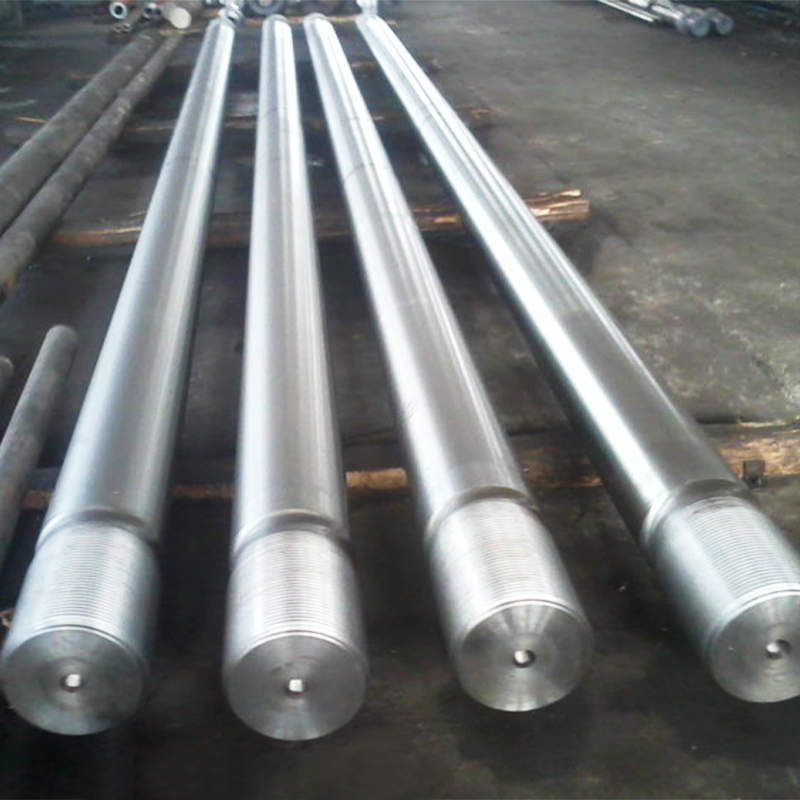
Strength and Toughness: Forged material bars are distinguished by their exceptional strength and toughness, attributes crucial for withstanding high-stress conditions. During forging, the metal is subjected to intense compressive forces that refine its internal structure. This process aligns the grain flow to follow the contours of the component, creating a homogeneous microstructure with fine grains. As a result, forged bars exhibit higher tensile and yield strengths compared to cast or machined bars. This enhanced strength-to-weight ratio enables them to endure significant loads without deformation or failure, making them ideal for critical applications in heavy machinery, aerospace, and automotive industries.
Uniform Grain Structure: The forging process eliminates internal defects such as porosity and inclusions that are common in cast materials. This results in a uniform grain structure throughout the bar, which contributes to superior mechanical properties. The absence of defects enhances the material's resistance to fatigue and fracture, ensuring consistent performance under demanding conditions. The refined grain structure also improves the material's ductility and toughness, allowing it to absorb energy without catastrophic failure, which is crucial in applications where safety and reliability are paramount.
Directional Strength: One of the unique advantages of forging is its ability to align the grain structure according to the specific load paths within the component. By controlling the direction of grain flow during forging, manufacturers can tailor the material's strength and ductility to match the anticipated stress patterns. For instance, components subjected to bending or torsional stresses benefit from longitudinal grain alignment, which enhances their resistance to deformation and extends their operational lifespan. This directional strength optimization maximizes the efficiency and reliability of forged material bars in critical applications where precise performance under varying load conditions is essential.
Fatigue Resistance: High-stress environments often involve cyclic loading, which can lead to fatigue failure in materials. Forged bars excel in fatigue resistance due to their refined microstructure and absence of internal defects. The controlled grain flow ensures that stress is evenly distributed throughout the material, minimizing the initiation and propagation of cracks. This inherent resistance to fatigue enables forged bars to withstand millions of loading cycles without compromising their structural integrity, making them ideal for components subjected to repetitive stress, such as shafts, gears, and crankshafts in automotive and industrial machinery.
Improved Metallurgical Properties: Compared to cast or machined bars, forged material bars exhibit superior metallurgical properties. The forging process enhances the material's mechanical characteristics, including higher hardness, improved toughness, and enhanced wear resistance. These properties are achieved through the deformation and recrystallization of the metal, which refines its grain structure and redistributes alloying elements. As a result, forged bars possess optimized tensile strength, impact resistance, and ductility, enabling them to perform reliably in extreme operating conditions where traditional materials may fail. This improvement in metallurgical properties ensures that forged bars meet stringent performance requirements in critical applications across various industries.
Consistency and Reliability: Forging ensures consistency in material properties and dimensions across production batches. Unlike cast bars, which may exhibit variability in chemical composition and mechanical properties due to casting processes, forged bars offer predictable performance characteristics. The controlled manufacturing process minimizes material variability and ensures uniformity in grain structure, hardness, and dimensional accuracy. This consistency enhances the reliability of forged bars in applications where precision and repeatability are essential, such as structural components in aerospace, power generation, and defense sectors.




 English
English русский
русский Español
Español عربى
عربى



